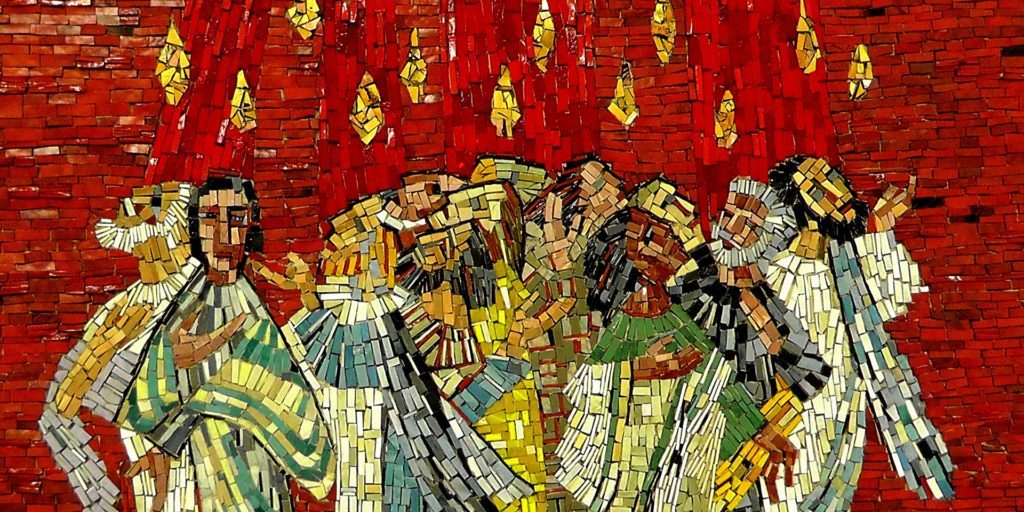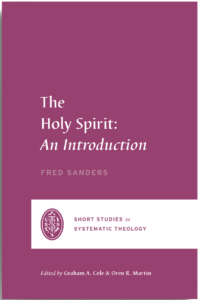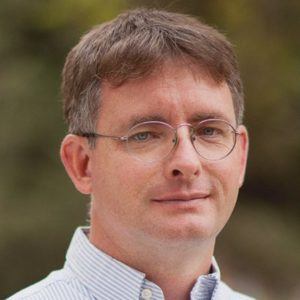
The Spirit Works Inseparably with the Father and the Son
T he most important thing to say about the work of the Holy Spirit is that it is inseparable from the work of the Father and the Son. His work is always radically united to the work of the whole Trinity and yet is truly his own work. Traditionally we describe this radical unity using the doctrine of the inseparable operations of the Trinity. This doctrine is worth paying attention to because when the triune God does anything, it is in some ways similar to creaturely work but is different from creatures in a more fundamental way. I want to warn you that this doctrine’s somewhat intimidating name reflects the fact that the doctrine itself is counterintuitive enough to be mind-blowing.
he most important thing to say about the work of the Holy Spirit is that it is inseparable from the work of the Father and the Son. His work is always radically united to the work of the whole Trinity and yet is truly his own work. Traditionally we describe this radical unity using the doctrine of the inseparable operations of the Trinity. This doctrine is worth paying attention to because when the triune God does anything, it is in some ways similar to creaturely work but is different from creatures in a more fundamental way. I want to warn you that this doctrine’s somewhat intimidating name reflects the fact that the doctrine itself is counterintuitive enough to be mind-blowing.
The starting point for the doctrine of inseparable operations is easy enough. In fact, it is even fun for anybody who enjoys Bible study. It begins when you notice that Scripture consistently ascribes the same divine works to all three persons of the Trinity. The most important thing to say about the work of the Holy Spirit is that it is inseparable from the work of the Father and the Son. Click To TweetCreation, for instance, is ascribed to the Father, his Word, and his Breath (Job 33:4; Pss. 33:6; 100:3; 102:26–28; John 1:3). Or consider a vital event like the resurrection of Christ. Scripture tells us that the Father raised him up (1 Cor. 6:14), that the Son had power to raise himself up (John 2:19), and that the Spirit quickened him (1 Pet. 3:18). All resurrection from the dead, in fact, is accomplished by the Father (John 5:21), the Son (also John 5:21), and the Holy Spirit (John 6:63). The Father sanctifies (Jude 1), the Son sanctifies (Heb. 2:11), and the Holy Spirit sanctifies (Rom. 15:16).[1] You may notice that this doctrine has to be assembled from many distinct passages of Scripture, because the Bible has different reasons for identifying Father, Son, and Holy Spirit as active in these works in different contexts. But the result, after just a little bit of cross-referencing and collation, is a recognition that Father, Son, and Holy Spirit are each identified as the ones carrying out the same exact actions. That is already saying a lot about their indivisible operations.
In everything they do, Father, Son, and Holy Spirit work in unison. But their cooperation is so uniquely intimate that we probably shouldn’t even call it cooperation, technically. There aren’t three different operations coordinated with each other, after all. Consider the human analogy of three workers. When three people work together on a project, each does his own part of it. As Gregory of Nyssa (335–395) describes it, “even if several are engaged in the same form of action, [they] work separately each by himself at the task he has undertaken, having no participation in his individual action with others who are engaged in the same occupation.” In everything they do, Father, Son, and Holy Spirit work in unison. Click To TweetThere are distances between them and differences between them. They take turns (which is a kind of distance in time), or work on different parts of the project (distance in space), or come to the project from different angles (again, from different spaces). “Each of them is separated from the others within his own environment, according to the special character of his operation.”[2]
But none of these differences apply to the Trinity. The reason Nyssa spent time itemizing the nature of cooperation is so he could explain that Father, Son, and Holy Spirit don’t work together in that way:
But in the case of the Divine nature we do not similarly learn that the Father does anything by Himself in which the Son does not work conjointly, or again that the Son has any special operation apart from the Holy Spirit; but every operation which extends from God to the Creation, and is named according to our variable conceptions of it, has its origin from the Father, and proceeds through the Son, and is perfected in the Holy Spirit. For this reason the name derived from the operation is not divided with regard to the number of those who fulfil it, because the action of each concerning anything is not separate and peculiar, but whatever comes to pass . . . comes to pass by the action of the Three, yet what does come to pass is not three things.[3]
This is a classic statement of the inseparable external operations of the Trinity.[4] Athanasius of Alexandria (296–373) taught that “the Father does all things through the Word and in the Holy Spirit. In this way is the unity of the Holy Trinity preserved.”[5] Gregory of Nyssa drew out this line of thought a bit more explicitly by saying that “every operation . . . has its origin from the Father, and proceeds through the Son, and is perfected in the Holy Spirit.” Each of these operations manifests a single divine power coming forth from the divine nature. Each of these actions that “extends from God to the Creation” is a work in which Father, Son, and Spirit work indivisibly, but according to the order “from the Father . . . through the Son . . . in the Holy Spirit.”[6] That order is carried over from the internal life of God so that it is reflected in the external works. So each divine work is inseparably the work of all three persons in unison, though we can recognize each of them in it. We recognize them not by the differences or distances in their ways of working but by the repetition of their eternal order, which we can indicate prepositionally: from the Father, through the Son, in the Spirit. From, through, in.
The above excerpt is from The Holy Spirit: An Introduction by Fred Sanders. Crossway, 2023. Used by Permission.
Endnotes
[1] Most of these correspondences are taken from William Jones of Nayland, The Catholic Doctrine of a Trinity (1756; repr., Philadelphia: D. Dickinson, 1818), 170–74. Nayland’s book is a remarkable demonstration of the Trinity by way of extensive cross- referencing. It inspired Charles Wesley to write over a hundred hymns on the Trinity, closely following Nayland’s references. For a concise collection of passages that include the Holy Spirit in divine works, see Zacharias Ursinus, Commentary on the Heidelberg Catechism (1852; repr., Phillipsburg, NJ: Presbyterian & Reformed, 1992), 275.
[2] Gregory of Nyssa, “Not Three Gods,” in Nicene and PostNicene Fathers, ed. Henry Schaff and Philip Wace, series 2, vol. 5 (New York: Charles Scribner’s Sons, 1917), 331–36.
[3] Gregory of Nyssa, “Not Three Gods, ” 334.
[4] For a full-length account, see Adonis Vidu,The Same God Who Works All Things: Inseparable Operations in Trinitarian Theology (Grand Rapids, MI: Eerdmans, 2021).
[5] Athanasius of Alexandria, “Letters to Serapion” (1.28.2–3), in Works on the Spirit: Athanasius the Great and Didymus the Blind, trans. Mark DelCogliano, Andrew Radde-Gallwitz, and Lewis Ayres (Crestwood, NY: St. Vladimir’s Seminary Press, 2011), 97.
[6] Athanasius, “Letters to Serapion,” 97.

